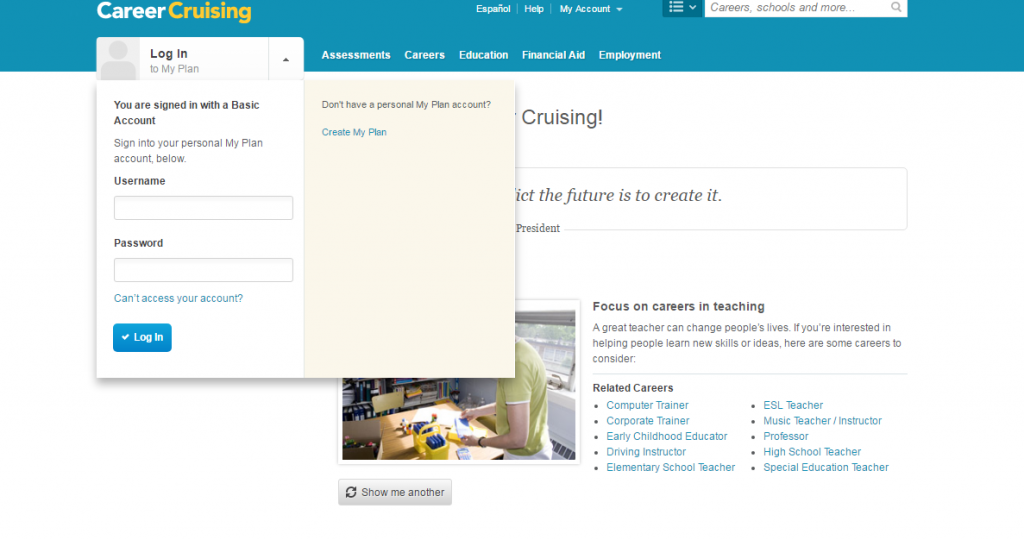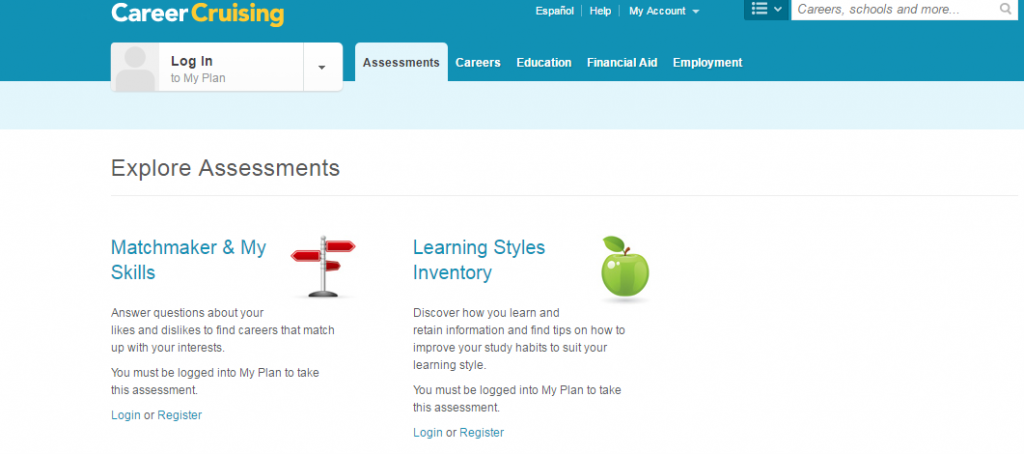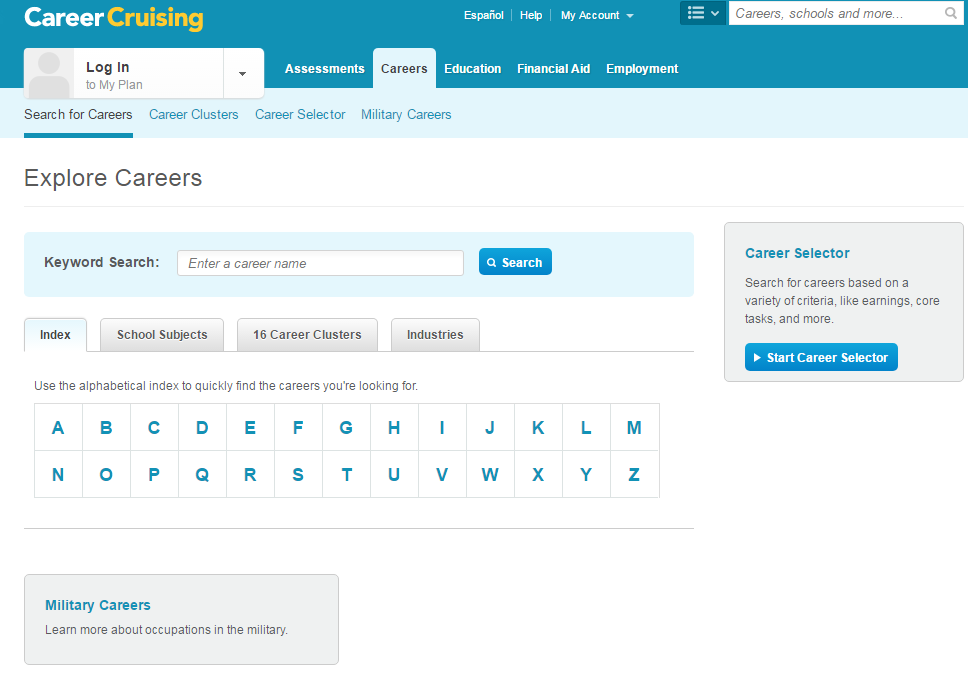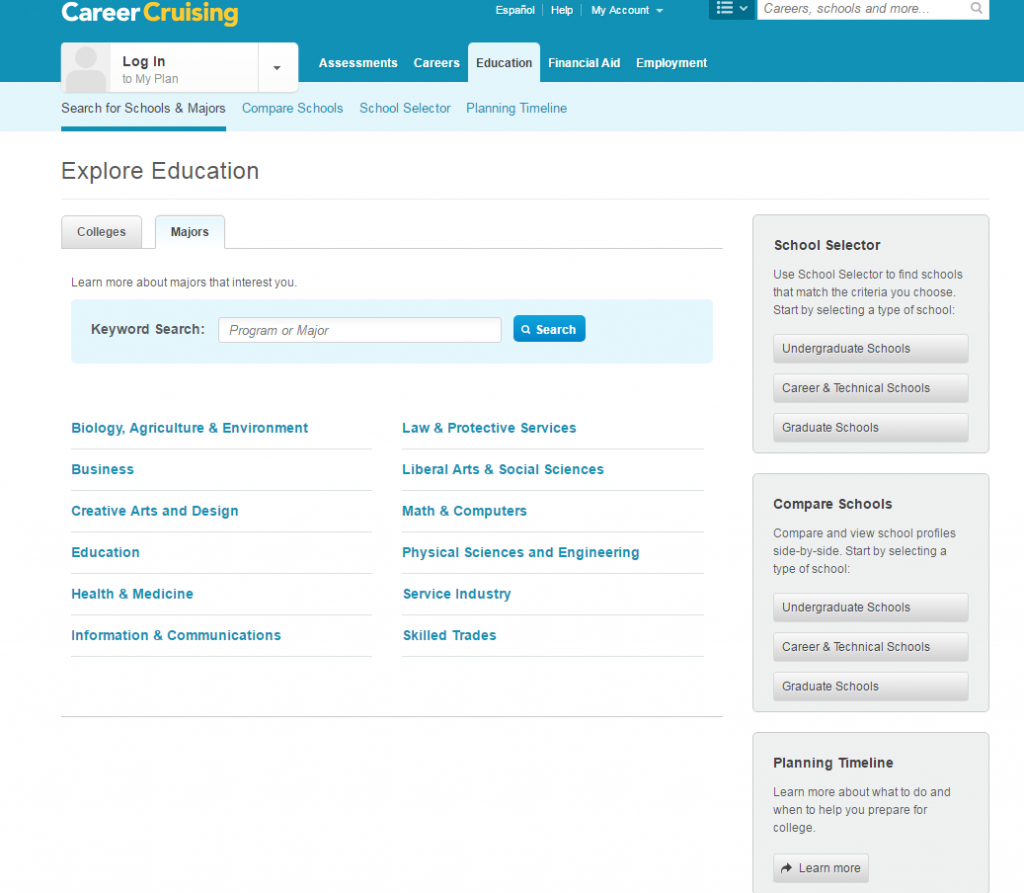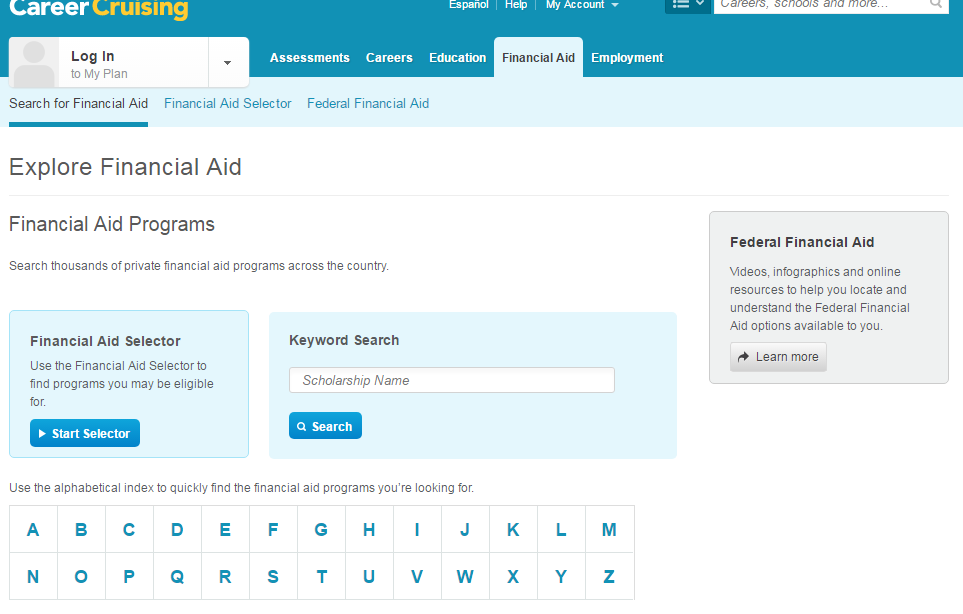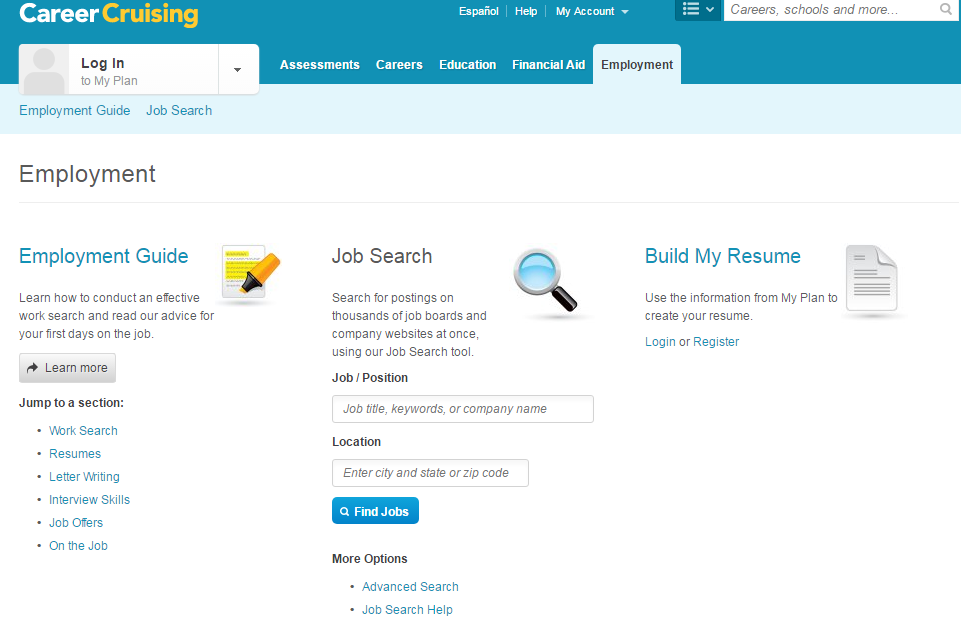This is the second post in a series delving into the various aspects of the Career Cruising database available through the East Baton Rouge Parish Library’s Digital Library. Read all posts here.
The first step to any career decision is self-knowledge. You need to know what you want in order to pursue it. Assessments can be a useful first step to help you figure out what career you want to pursue. Career Cruising offers two assessments, the Matchmaker & My Skills and the Learning Styles Inventory. Before you start your assessments, you will have to create a free account with Career Cruising.
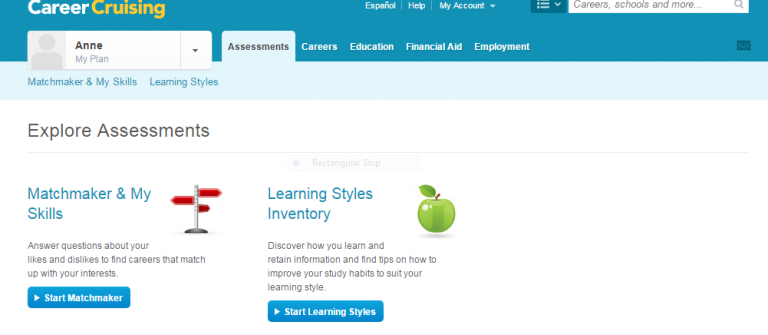
The Matchmaker assesses your interest in certain common work activities. It is very intuitive. You will be presented a number of questions about common occupational tasks, and you choose the answer that applies most: dislike very much; dislike; does not matter; like; like very much.
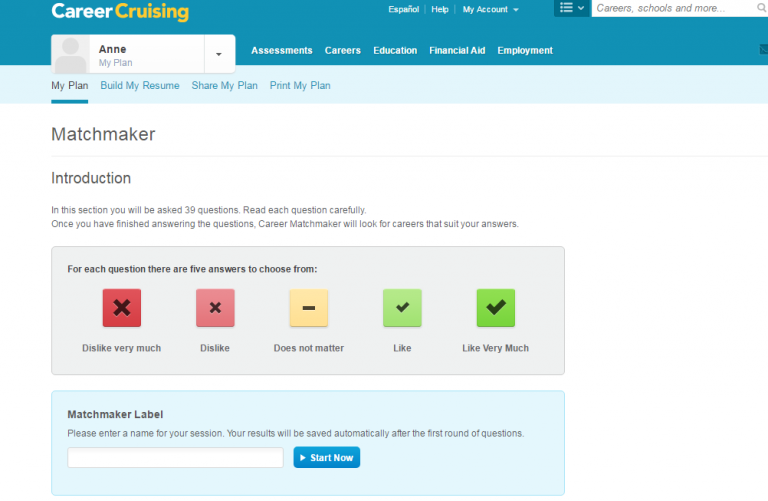
Before you start you are also asked to indicate the level of education you aspire to or already have. The database will present you only with jobs that match your interests and the indicated education level.
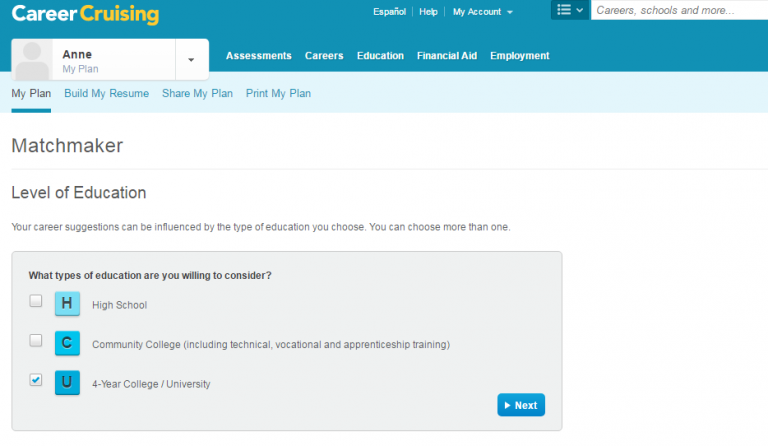
After you finish answering the questions, Career Cruising will present you with a list of occupations that match your indicated interests.
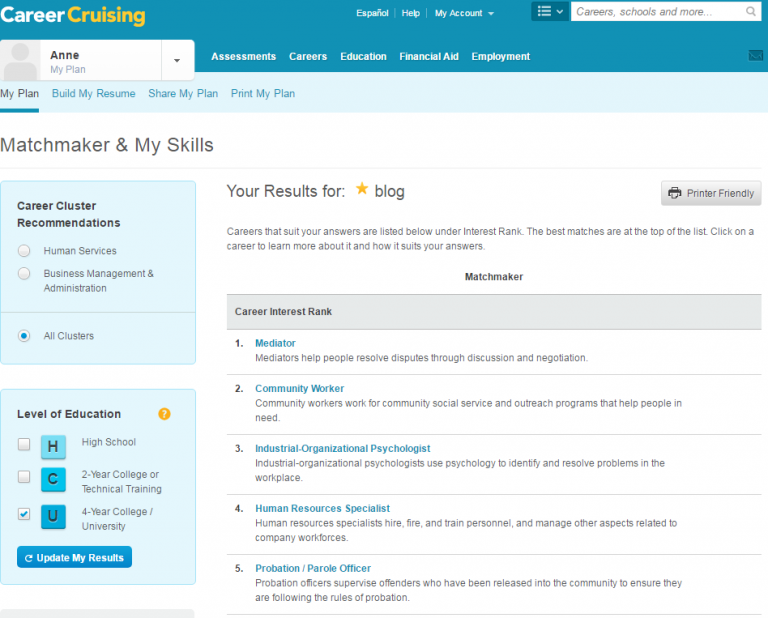
At this point you could change the level of education to see what matching careers would be available with a different degree of education.
You can stop here and explore the indicated careers further by clicking on the link to get to in-depth information about each respective career. Or you can continue the assessment, which now changes scope and asks about the skills most commonly associated with your matching careers. You again answer the questions on a five point scale: highly skilled; skilled; have some skill; don’t have this skill; can’t answer this.
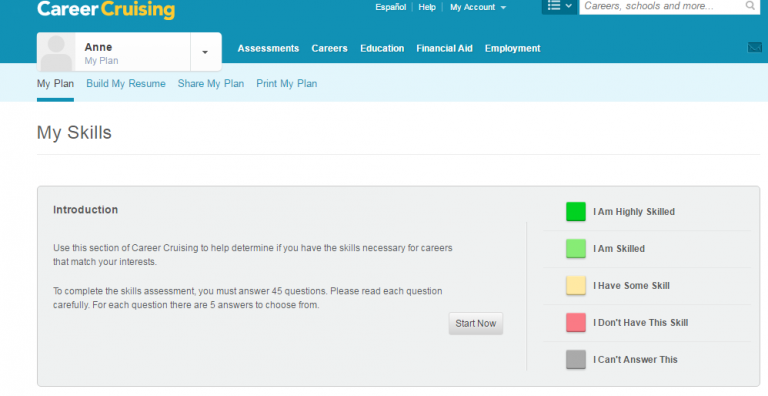
The results of the skills assessment will be incorporated with the results of the interest assessment and shows if you have the skills most commonly associated with those careers. Now, it is important to note that this skills assessment depends on your self-reported answers. Therefore it is not an objective overview of your skills.
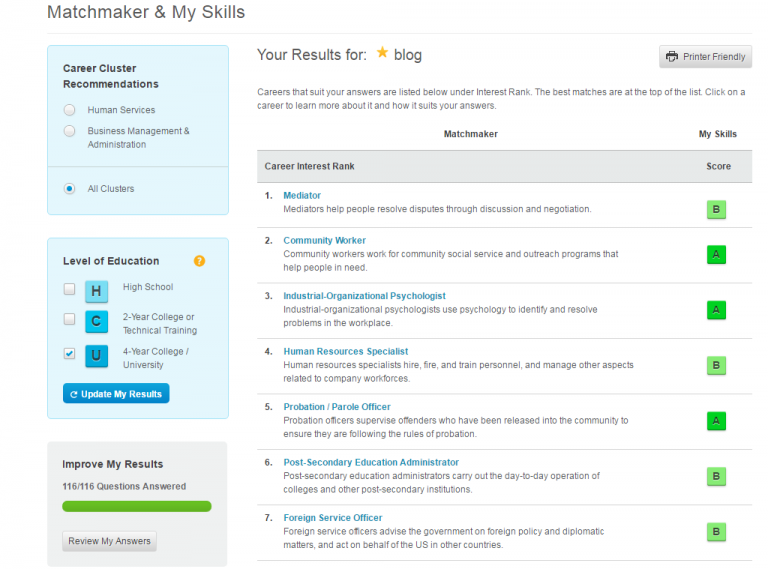
Now you can see if you already have the major skills needed for the careers you are interested in. This serves as great input for further research.
The second assessment, the Learning Styles Inventory (LSI) will show you how you best process information. There are three types of learning or ways of processing information: visual (looking at information, graphs, images, etc); auditory (listening to information); and tactile (hands-on learning). Most people prefer one way of learning over the others. This information can be especially useful for students who are still contemplating their further education and career path.
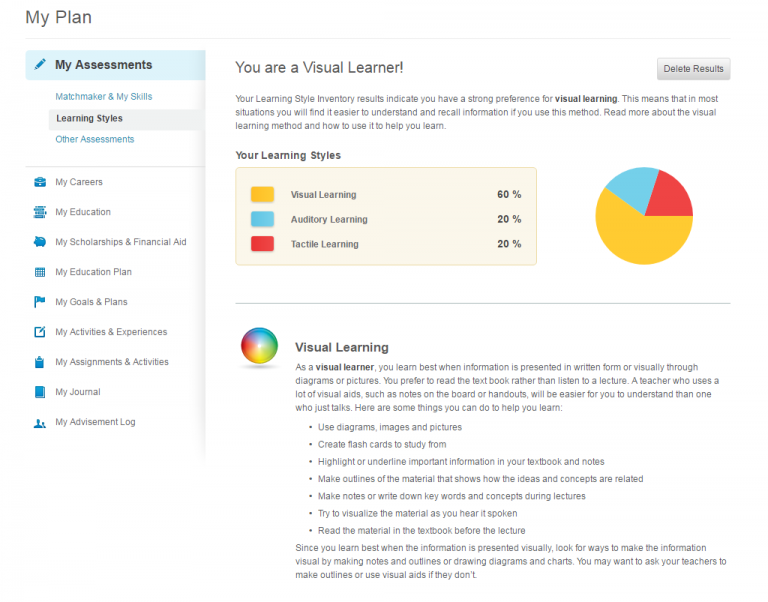
Both assessments are a good start for your career exploration. They are intuitive and quick to take and will lead you to more information about matching careers.
The Career Cruising database can be accessed through the EBRPL Digital Library.
Written by Anne Nowak.
Note: This article was originally published in June 2017. It has been re-posted here with updates in order to reach a new audience.

